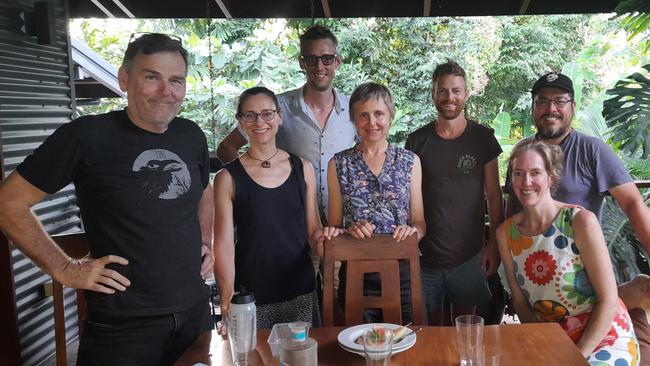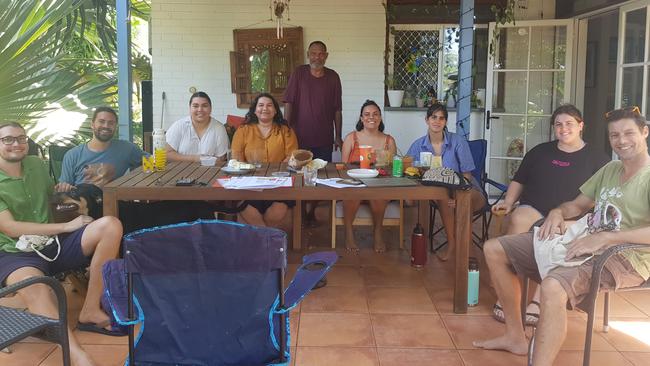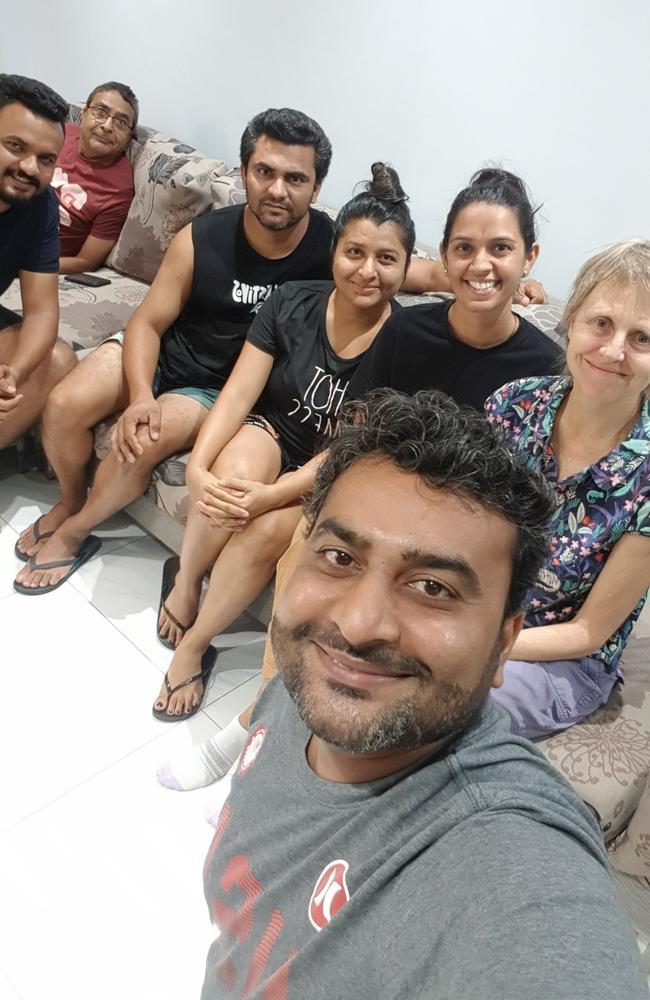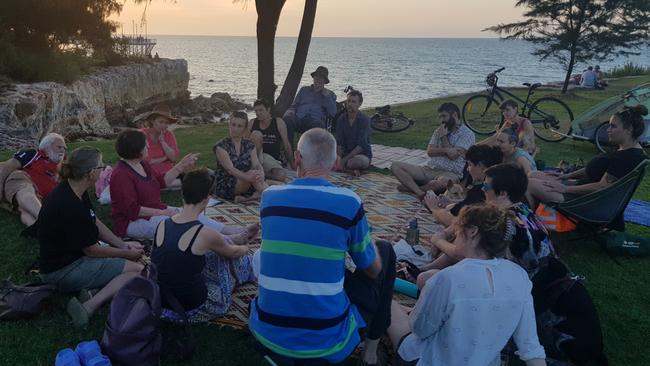Voices of the Top End launches pre-election report into community sentiment
A grassroots organisation has launched their report into political sentiments in some of the Territory’s safest seats.

Politics
Don't miss out on the headlines from Politics. Followed categories will be added to My News.
Top End voters are turning away from the major parties disillusioned with their pitches on sustainability, crime and Indigenous affairs, according to a survey of 249 residents.
On Tuesday, Voices of the Top End launched their community engagement report following five months of grassroots polling and small-group meetings.
VoTE member Phil Scott said the nonpartisan volunteer organisation aimed to engage Territorians with the democratic process and political debates by hosting “kitchen table conversations”.

Ms Scott said the group had hosted small group meetings involving 249 residents, mainly from the northern suburbs and Darwin’s inner city.
A survey of attendees found 86 per cent did not feel represented by either their federal or Territory political representatives, with more than half saying politicians were not listening.
“People felt that industry had more influence than the community and that their views did not matter,” the report said.
“They felt that representatives were beholden to their political party, and followed party lines.
“People have lost trust in party politics.”
Voters repeatedly said the current representatives were not transparent, or reflective of their values.

“I don’t feel represented by a two-party system and there’s not enough pressure put
on politicians to actually listen to people,” one person said.
“They can get away with doing very little.”
Given the disillusionment with party politics, the voters called for the Territory to undergo major decision making reform.
Two fifths of respondents called for community participation, while a quarter called for evidence-based policy and law while others pushed for more independent candidates.
Critically the report said Territorians “want a long-term vision from the government, plans and action beyond the election cycles”.

The participants in the VoTE meetings were dominated by residents from the safe Labor seats of Nightcliff, Casuarina, Sanderson, Johnston, Fannie Bay with the some respondents from the marginal Port Darwin seat.
The biggest issues for the largely Darwin city fringe voters were climate change and energy, First Nations equity, environment and water protections, followed by crime and safety.
The report said 21 per cent said community safety was their top election issue, with concerns about crime in their neighbourhoods and the generational disengagement of young people in the Territory.

Voters repeatedly emphasised the need for adequate housing, education, food security and mental health care to address social inequality, and future-proofing the Territory for the impacts of climate change.
Mr Scott said many also felt like the current mainstream political systems were failing First Nations people by not addressing long-term disparities.
He said future meetings hoped to engage more of the Top End Community, particularly voters in Palmerston.
“We want to show the community and our elected representatives that there is extraordinary local knowledge and wisdom in the community.”





